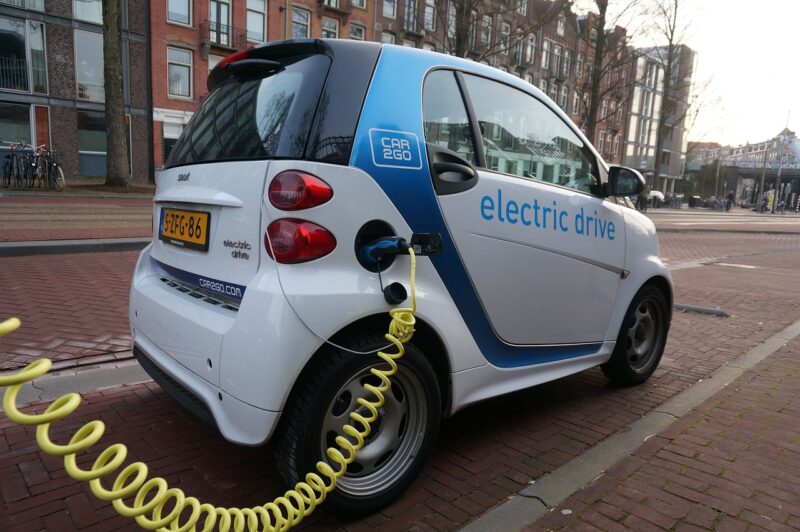In the ever-evolving landscape of automotive technology, the transition from traditional gas-powered vehicles to electric cars has gained significant traction. Converting your gas-powered car to electric is not only an eco-friendly choice but also a testament to your commitment to sustainability. In this comprehensive guide, we’ll delve into the intricacies of this conversion process, providing you with detailed insights to navigate the transformation seamlessly.
Understanding the Basics
1. Assessment of Viability
Before embarking on the electrification journey, it’s crucial to assess the viability of converting your gas-powered car. Consider factors such as the age and condition of your vehicle, availability of conversion kits, and local regulations pertaining to electric vehicle modifications.
2. Selecting the Right Conversion Kit
Choosing the appropriate conversion kit is paramount. Ensure compatibility with your vehicle make and model. A well-rounded kit should include an electric motor, power controller, battery pack, charging system, and associated wiring. Opt for reputable suppliers with a track record of successful conversions.
The Conversion Process
3. Stripping the Internal Combustion Components
Begin the transformation by removing the internal combustion engine, fuel system, and exhaust components. This step sets the stage for integrating the electric propulsion system seamlessly.
4. Installing the Electric Motor
Precise installation of the electric motor is crucial for optimal performance. Follow manufacturer guidelines to position the motor correctly, connecting it to the transmission system and ensuring alignment for smooth operation.
5. Integrating the Battery Pack
The heart of your electric vehicle lies in the battery pack. Select lithium-ion batteries for their efficiency and energy density. Integrate the battery pack securely into the vehicle, considering weight distribution and safety measures.
6. Configuring the Power Controller
Calibrate the power controller to manage energy flow efficiently. This component regulates the speed and torque of the electric motor, providing a seamless driving experience.
Safety Considerations
7. Addressing Safety Concerns
Safety is paramount in any vehicle modification. Ensure the electrical components are properly insulated, and wiring is secure to prevent short circuits. Regularly inspect the system for potential issues, and adhere to safety standards during the conversion process.
Performance Optimization
8. Fine-Tuning for Efficiency
After the initial conversion, fine-tune the electric vehicle for optimal efficiency. Adjust settings, such as regenerative braking and acceleration response, to align with your driving preferences.
Benefits of Electric Conversion
9. Environmental Impact
By converting your gas-powered car to electric, you contribute to reducing carbon emissions and lowering your ecological footprint. Electric vehicles are known for their environmental benefits, aligning with the global push towards sustainable transportation.
10. Long-Term Cost Savings
While the initial investment in conversion may seem substantial, the long-term cost savings on fuel and maintenance offset the upfront expenses. Electric vehicles generally have fewer moving parts, resulting in reduced maintenance costs over time.
Conclusion
In conclusion, converting your gas-powered car to electric is a transformative journey that requires meticulous planning and execution. By following this comprehensive guide, you can navigate the process effectively, embracing the future of sustainable transportation.
Similar Articles
- Compressed Natural Gas (CNG) and its Impact on Transportation
- Exploring the Top Alternative Fuels for a Sustainable Future
Frequently Asked Questions (FAQs) About Converting Your Gas-Powered Car to Electric
Q1: What is the process of converting a gas-powered car to electric?
A1: Converting a gas-powered car to electric involves several key steps. First, assess the viability of conversion, then select a suitable conversion kit. The process includes stripping internal combustion components, installing the electric motor, integrating the battery pack, and configuring the power controller. Safety considerations and performance optimization are crucial throughout the process.
Q2: How do I determine if my car is suitable for conversion?
A2: Assess the viability of conversion by considering factors such as the age and condition of your vehicle, availability of conversion kits, and local regulations. Consulting with professionals or reputable conversion kit suppliers can provide valuable insights into whether your car is a good candidate for electrification.
Q3: What components are included in a typical conversion kit?
A3: A comprehensive conversion kit generally includes an electric motor, power controller, battery pack, charging system, and associated wiring. It’s crucial to choose a kit that is compatible with your vehicle’s make and model, ensuring seamless integration.
Q4: Can I perform the conversion myself, or should I seek professional help?
A4: While some enthusiasts may choose a DIY approach, converting a gas-powered car to electric requires technical expertise. Seeking professional help ensures precision in the installation of critical components, adherence to safety standards, and overall success in the conversion process.
Q5: What safety considerations should I keep in mind during the conversion?
A5: Safety is paramount in any vehicle modification. Ensure proper insulation of electrical components, secure wiring to prevent short circuits, and adhere to safety standards throughout the conversion process. Regular inspections and adherence to safety protocols are essential.
Q6: What are the benefits of converting my gas-powered car to electric?
A6: Converting to an electric vehicle offers environmental benefits by reducing carbon emissions and lowering your ecological footprint. Additionally, there are long-term cost savings on fuel and maintenance. Electric vehicles generally have fewer moving parts, resulting in reduced maintenance costs over time.
Q7: Are there any performance considerations after the conversion?
A7: After the initial conversion, fine-tune the electric vehicle for optimal efficiency. Adjust settings, such as regenerative braking and acceleration response, to align with your driving preferences. Regular maintenance and performance checks are recommended for a smooth driving experience.
Conclusion
Converting your gas-powered car to electric is a significant decision with numerous considerations. These FAQs provide a glimpse into the process, helping you make informed choices as you embark on the journey towards sustainable transportation.










